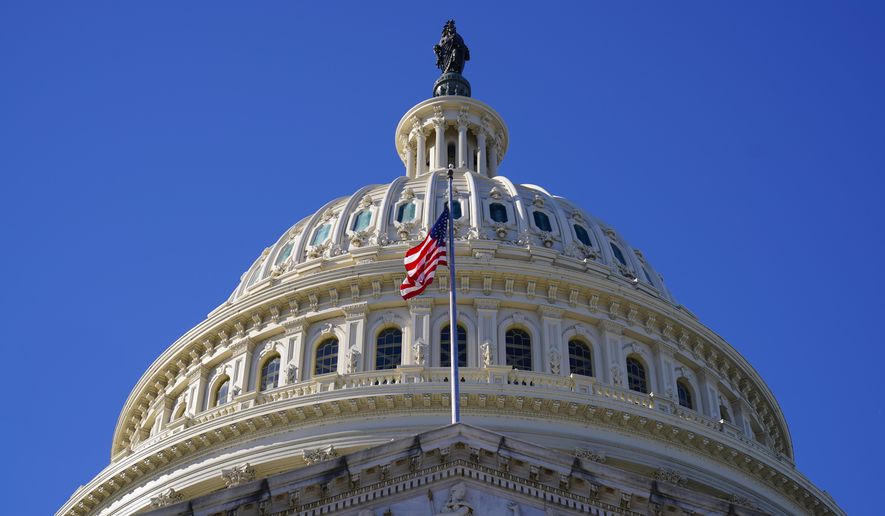WASHINGTON (AP) – President Joe Biden’s choice to run one of the agencies charged with overseeing the banking industry faced sharp questioning Thursday from Republican senators, who tried to label Saule Omarova as someone who would nationalize the U.S. banking system.
Omarova, 55, was nominated in September to be the nation’s next comptroller of the currency. If confirmed, she would be the first woman and person of color to run the 158-year-old agency.
Omarova is a long-time academic and well-regarded expert on financial regulation, but many Republicans and the banking industry have taken issue with several papers published during her career where she’s proposed wholesale changes to the banking system.
“Taken in totality, her ideas do amount to a socialist manifesto for American financial services,” said Sen. Pat Toomey of Pennsylvania, the top Republican on the Senate Banking Committee, speaking at Thursday’s hearing.
Another senator, referring to her childhood in the former Soviet Union, said he did not know whether to call her “professor or comrade.”
The banking lobby is overwhelmingly against her nomination. In an interview with The Associated Press this week, Omarova said their opposition is largely due to fears that she would be a tough regulator for Wall Street and banks.
“This is a vicious smear campaign, coordinated by Republicans who are doing the bidding of the large banks,” said Sen. Elizabeth Warren, D-Massachusetts, a long-time critic of the big banks.
Republicans on the committee focused their questioning or statements on Omarova’s past writings and public comments.
Last year, she published a paper arguing for an overhaul of the nation’s banking system that would expand the Federal Reserve’s role by allowing the central bank to hold consumer deposits. Proponents of such a move say the Fed could extend credit more quickly when needed to individual accounts during times of economic downturns. Following the Great Recession, banks hoarded deposits and did little lending to rebuild their balance sheets.
The nomination could hinge on two moderate Democratic senators who sit on the Banking Committee: Jon Tester of Montana and Kyrsten Sinema of Arizona. Republicans are united in their opposition to and Toomey and others tried to paint Omarova as a radical choice in order to dissuade Tester and Sinema from her giving their support.
In his questioning, Toomey said he still had “significant concerns” about Omarova’s nomination even after meeting with her privately. Toomey focused most of his questioning on Omarova’s previous opposition to a bipartisan law that removed some of the framework enacted after the 2008 financial crisis. Toomey was a co-sponsor of that law.
Omarova said she now sees merit in the law, particularly how it lessened the regulatory paperwork required of small community banks.
Omarova was born in Kazakhstan when it was part of the Soviet Union and immigrated to the U.S. in 1991. She has worked primarily as a lawyer and, for the last several years, at Cornell University as a professor of law. Over the years she has testified numerous times as an expert witness on financial regulation. She worked briefly in the administration of President George W. Bush.
Her origins in the former Soviet Union have become red meat for some members of Congress and their allies in the conservative press. In a letter to Omarova after she was nominated, Toomey requested a copy of a graduation paper she wrote about Karl Marx “in the original Russian” when she was an undergraduate at Moscow State University.
While some senators during the hearing tried to downplay this narrative, the issue was raised by Sen. John Kennedy, R-Louisiana. The senator asked whether Omarova still had a membership with youth Soviet communist organizations.
“I don’t know whether to call you professor or comrade,” Kennedy said, which led to some gasps in the hearing room.




Please read our comment policy before commenting.